What’s The Best College Golf Team Of All Time?
There have been some standout college teams through the years, but which was the best?

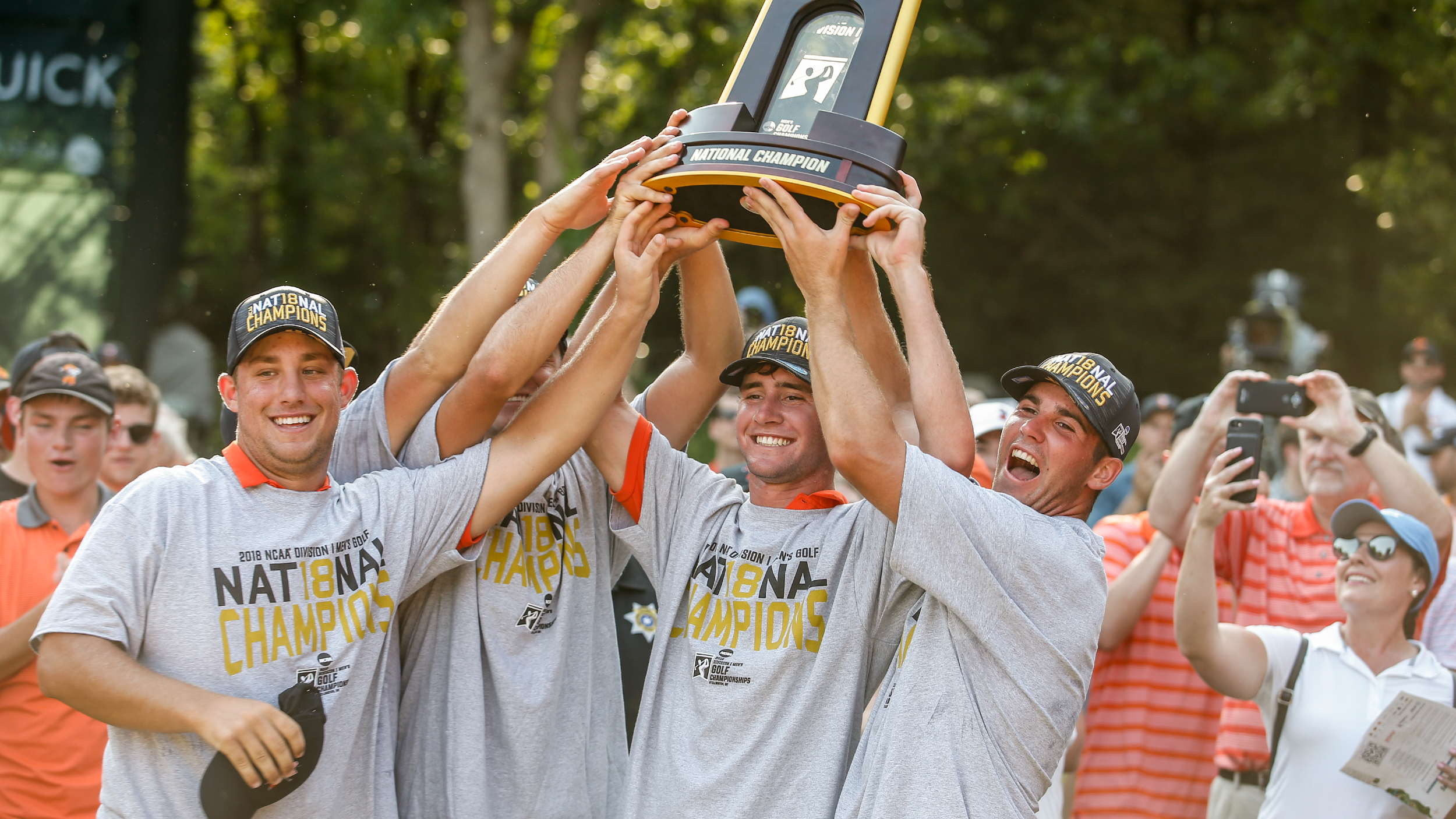
Trying to determine the best college golf team of all time is a bit like putting forward a case for the greatest player there's ever been – the answer will likely differ from person to person.
Each candidate can be judged on different factors, including the era they played in, the strength of their opponents, their tournament record, the manner of their victories, the talent within the team, and the impact those players made in their careers beyond college. Even so, several teams stand out...
Among the University of Houston's 16 NCAA Division I Championship men's titles were five in succession between 1956 and 1960 under the guidance of legendary coach Dave Williams - an era that included future PGA Tour winner Phil Rodgers and Jacky Cupit, helping the univerity to set a benchmark for team success in college golf.
Almost three decades later, Phil Mickelson had begun making an indelible mark on college golf on his way to 16 wins at Arizona State, including three individual NCAA Division I Championship titles - a feat only matched by Texas Longhorns player Ben Crenshaw.
It wasn’t just individual honors that Mickelson achieved, either. His efforts also helped the Sun Devils win the team title at the 1990 NCAA Division I Championship, as Mickelson won his second individual title.
That team’s achievement and the presence of Mickelson arguably puts it into the conversation of the best ever, but add in the fact that his teammates Per Ulrik Johansson, Todd Kernaghan, Jim Lemon, Scott Frisch, Cade Stone and Keith Sbarbaro all achieved top-10 finishes in the contest, and it makes it stand out even more.
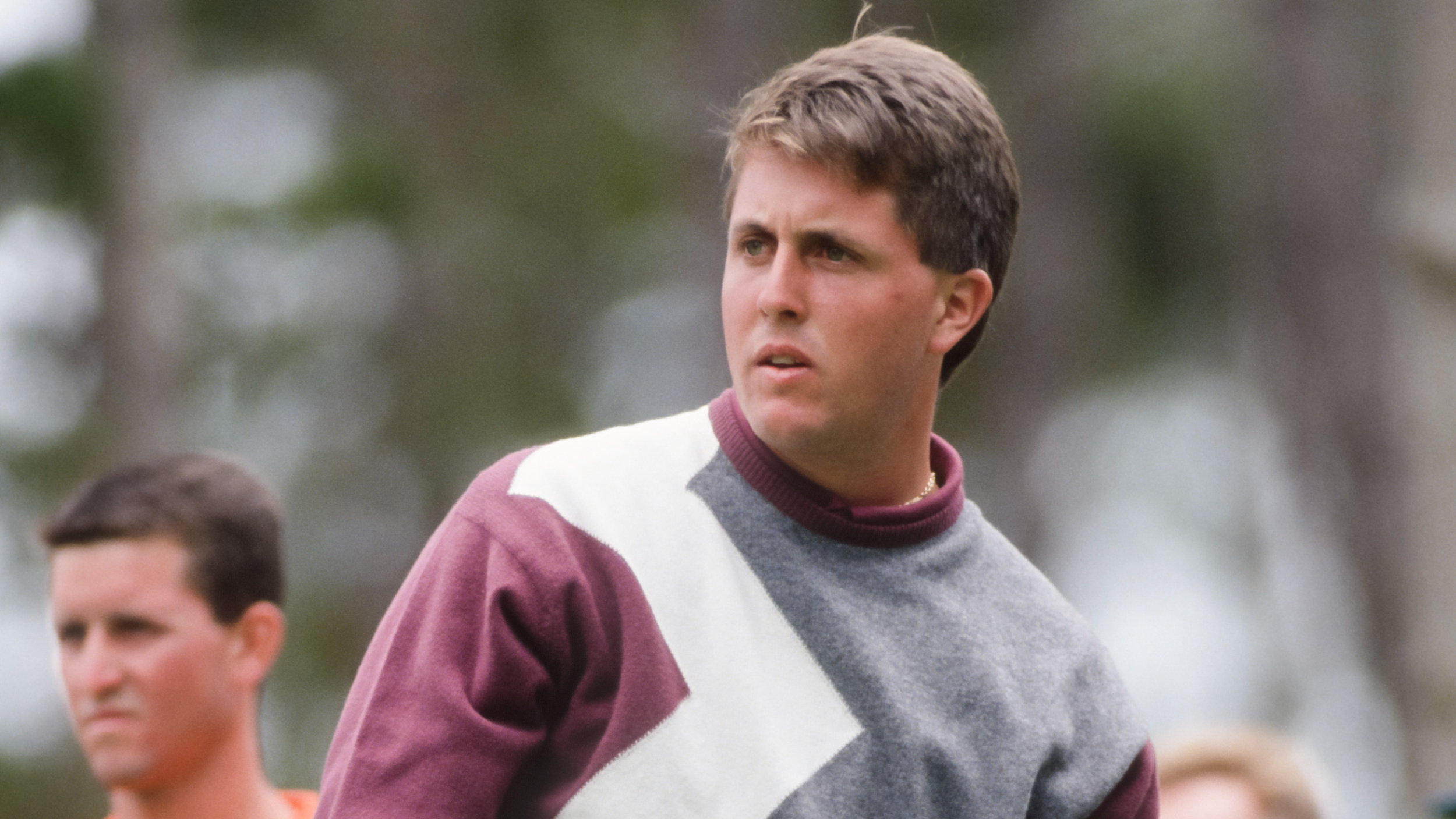
Similarly to Mickelson’s presence on that Arizona State team, it would be hard to dismiss the Stanford team of the mid-90s if for no other reason than it included a player who would go on to not only achieve almost unprecedented feats in the professional game, but alter the entire golf landscape.
Subscribe to the Golf Monthly newsletter to stay up to date with all the latest tour news, equipment news, reviews, head-to-heads and buyer’s guides from our team of experienced experts.
When Tiger Woods enrolled at the college, Stanford was coming off the back of a team title in the 1994 NCAA Division I Championship, with players including Casey Martin and Notah Begay III on its roster.
While Woods’ presence wasn’t enough to lead it to another title during his time at the university, he battled a bout of food poisoning in the 1995 regionals to see Stanford progress to the championship before the team finished runner-up to Oklahoma. He also took the individual title in 1996, among a host of other successes.
While Woods eventually embarked on a career that included 15 Major titles, Begay III also had a successful professional career, with five wins. Like Woods, he also broke a cultural barrier as one of the few Native Americans to make it to the PGA Tour.
With success, players who went onto a successful pro career and the shattering of a glass ceiling from not one but two of the team, even if that Stanford line-up isn’t the greatest ever, its impact was undoubtedly huge.
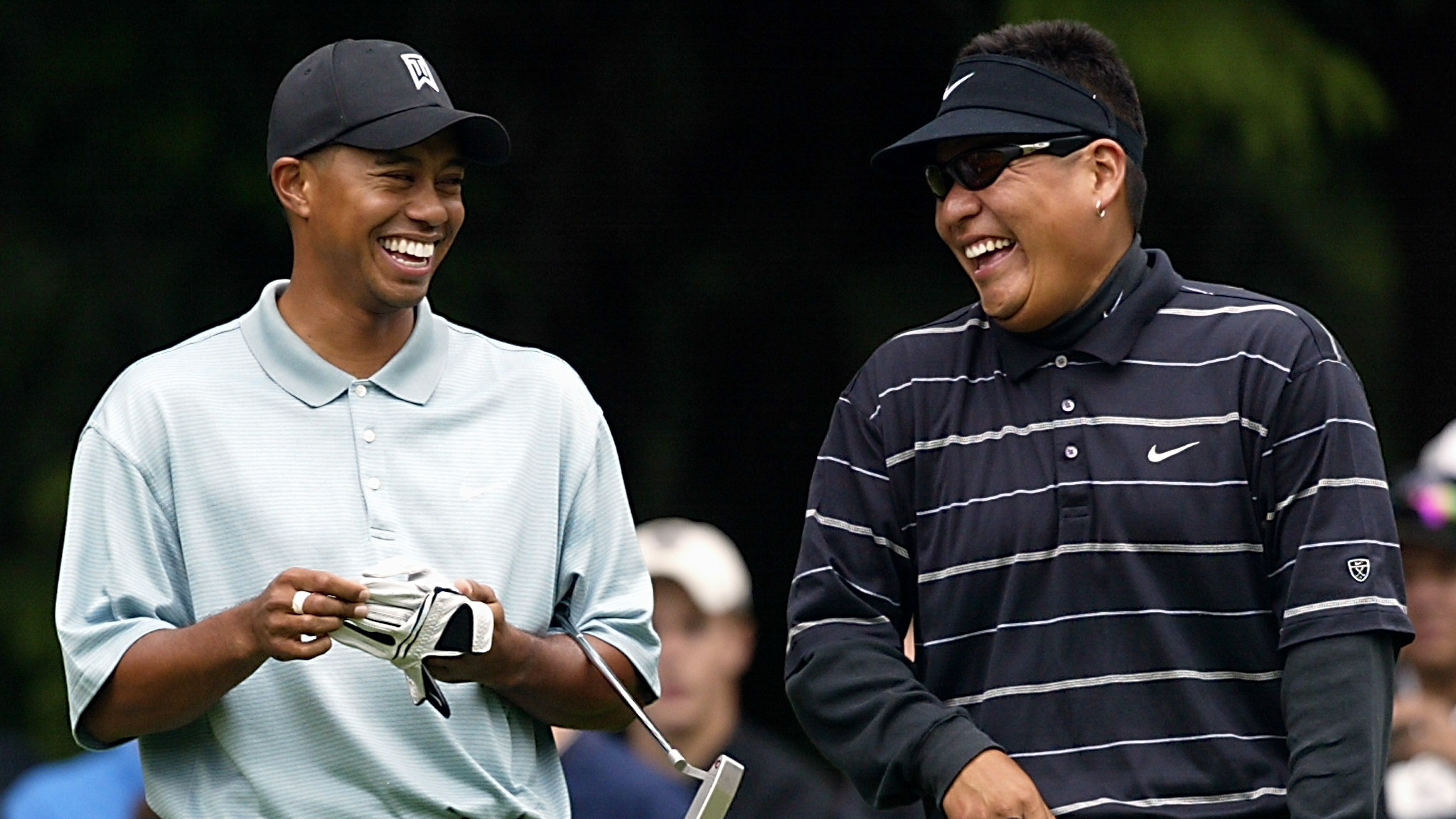
Stanford's Tiger Woods and Notah Begay III ultimately made stunning - and important - contributions to the professional game
The 1997-1998 UNLV men's team won almost every event it played in, so it was almost inevitable that it capped the season with victory in the NCAA Division I Championship, producing the lowest score in the tournament's history in the process with a team that included future PGA Tour star Charley Hoffman.
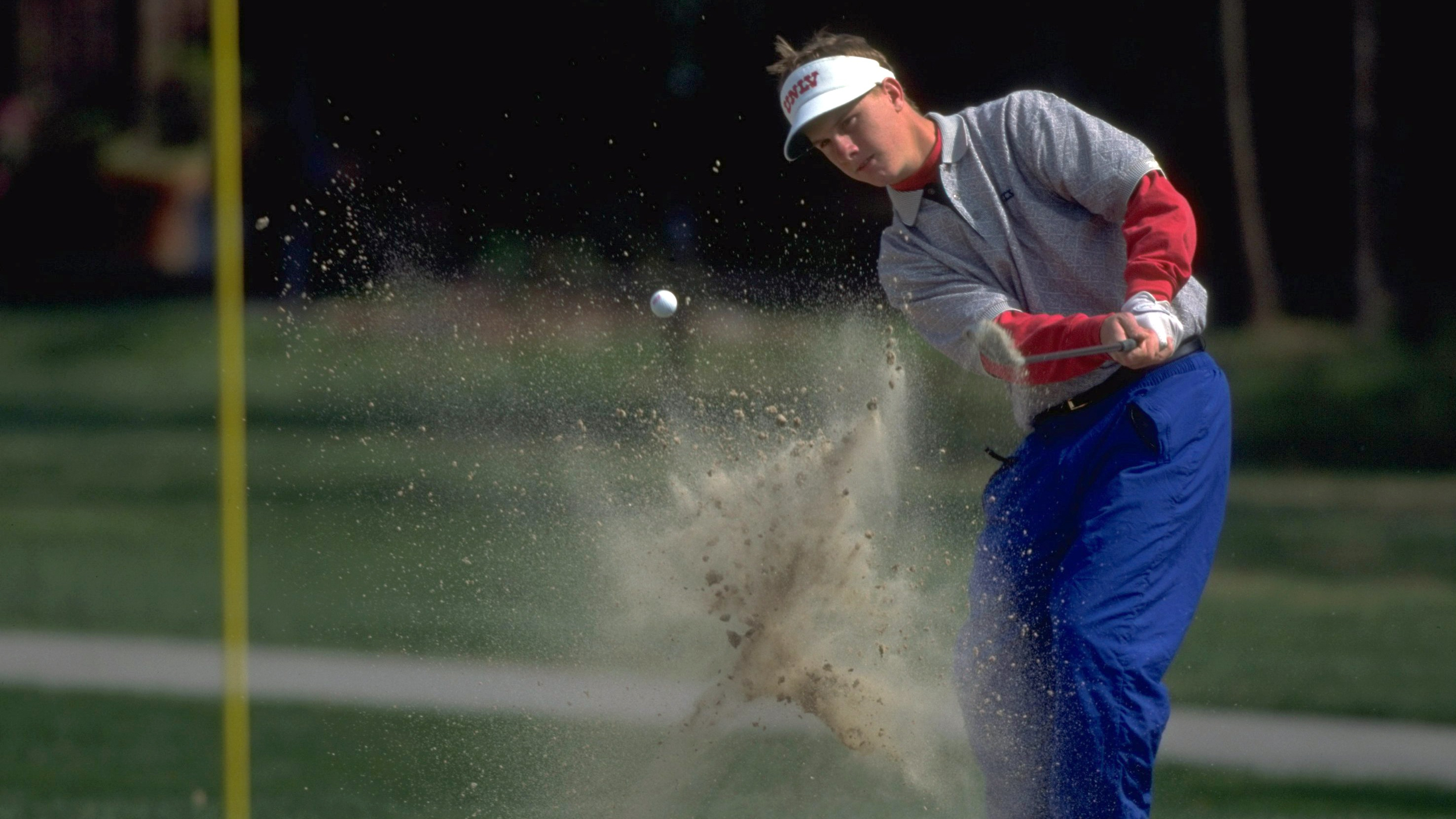
Charley Hoffman played for the all-conquering UNLV team of the 1997-1998 season
Perhaps the best men's college golf team of the 21st century so far emerged early on with the 2003-era Clemson Tigers team, which won both the ACC Conference Championship that year as well as the NCAA Division I Championship – the university’s first.
The team included 2002 Ben Hogan Award winner D.J. Trahan, Matt Hendrix, Jack Ferguson, who also holed the winning putt as Clemson won that year’s ACC Conference Championship, and former all-American Gregg Jones.
Household names? Hardly, but there’s no doubt that they took Clemson to heights it had never seen before, or since.
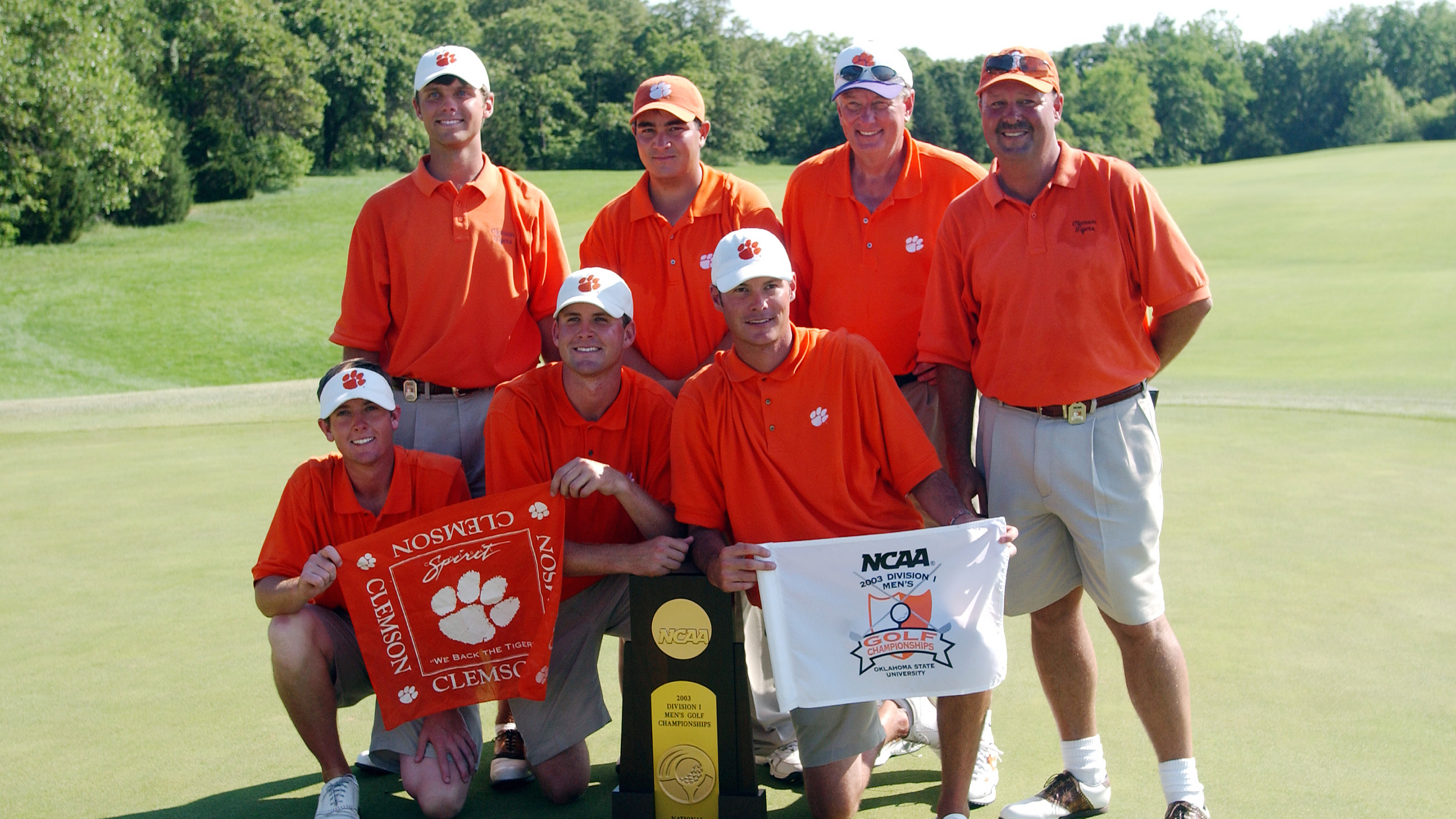
Clemson Tigers won the 2003 NCAA Division I Championship title
In the early 2010s, Jordan Spieth was one of a clutch of future stars to emerge at a similar time, and he came up against one of them in Alabama’s Justin Thomas during the final of the 2012 NCAA Division I Championship. He swept him aside, too, as he helped the University of Texas take the team title.
That Texas team also included future PGA Tour winners Cody Gribble and Dylan Frittelli, while Spieth has three Major wins so far, bringing it firmly into the conversation as one of the great modern-era men’s college golf teams.
It may not have attained the status of greatness, but the University of California team of 2012-13 was another highly impressive outfit. It won 11 times that season, including the Pac-12 Championship and the NCAA Regional Championship, while among its roster were players of the caliber of Max Homa and Michael Kim.
And how about the Alabama team of 2013 and 2014? It achieved the rarity of back-to-back NCAA Division I Championship wins and dominated the SEC Championship over the period. Players from the team, including Robby Shelton and Trey Mullinax, later went on to successful professional careers.

Trey Mullinax was one of a strong line-up for Alabama
Another team with a strong claim as the best of the modern-day game is the 2018 Oklahoma State line-up, which included future PGA Tour winners Viktor Hovland, Austin Eckroat and Matthew Wolff, who eventually joined LIV Golf, and Kris Ventura, who has had wins on the Korn Ferry Tour.
The team was the 2018 NCAA Division I Championship winner – its 10th victory of the season – making it a major contender as the best men’s college golf team ever, and undoubtedly a standout candidate since the turn of the century.
An earlier Oklahoma State era came between 1976 and 1978 under the guidance of one of the best college golf coaches, Mike Holder, when the team, which included Lindy Miller, David Edwards and 1986 PGA Champion Bob Tway, won the NCAA Division I Championship twice.
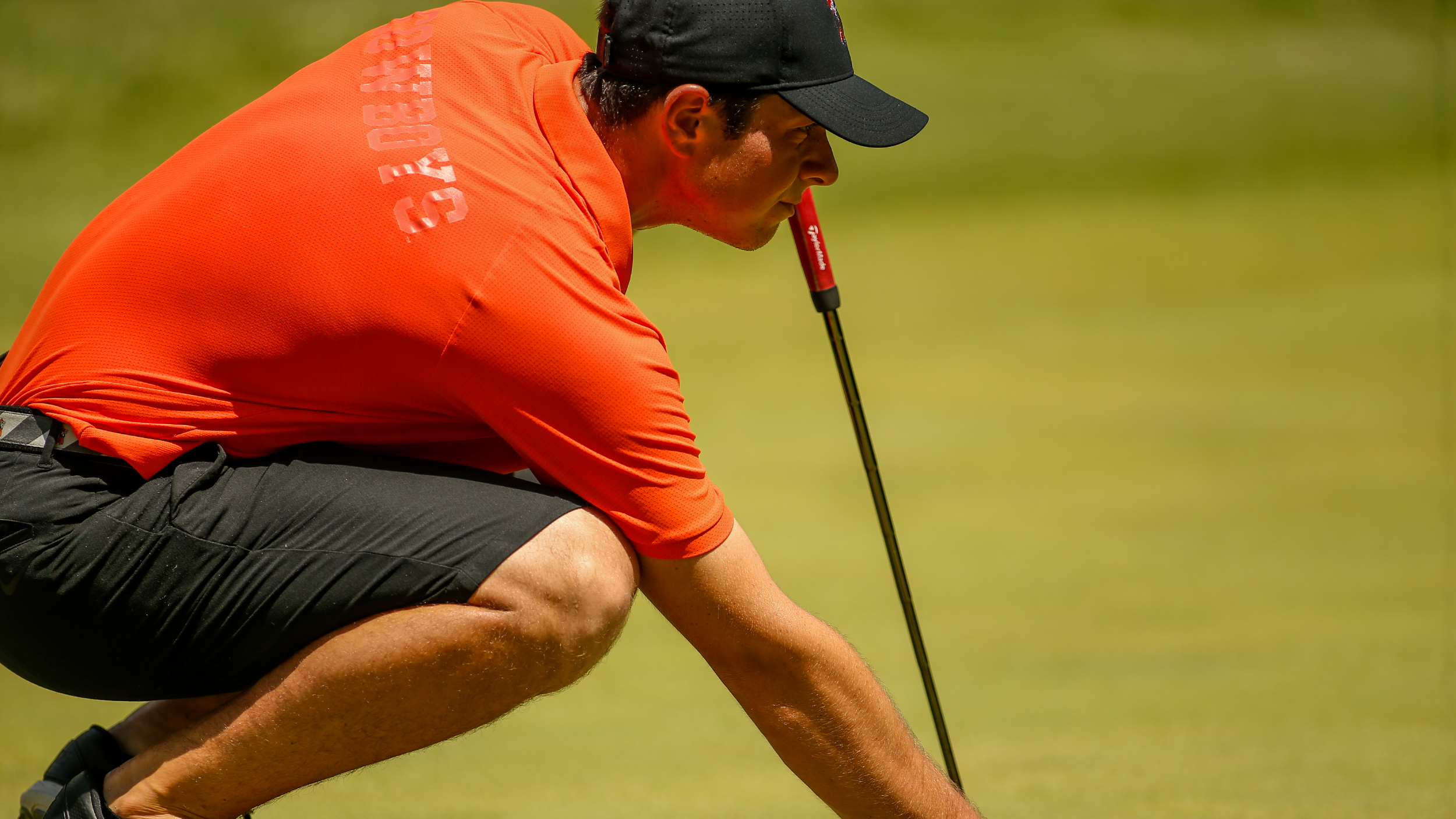
Viktor Hovland was part of one of the best teams of the century, the 2018 Oklahoma State line-up
In the women’s college game, several teams stand out from the crowd. The University of Arizona team of the early 1990s is one, largely because of one of its members. Annika Sorenstam played for the team for two years before turning pro in 1992, collecting seven wins along the way including the NCAA Division I Championship Individual title in 1991.
That was nothing compared to what she would go on to achieve in the game, including 10 Major wins, but it still gave Arizona a successful period, albeit without a team NCAA Division I Championship title.
Another hugely successful team was Duke University, which claimed three successive NCAA Division I titles between 2005 and 2007, while among its roster was future US Women’s Open champion Britanny Lang, along with the likes of Amanda Blumenherst, who was a three-time national player of the year while at the university, and Anna Grzebien, who also competed on the LPGA Tour.
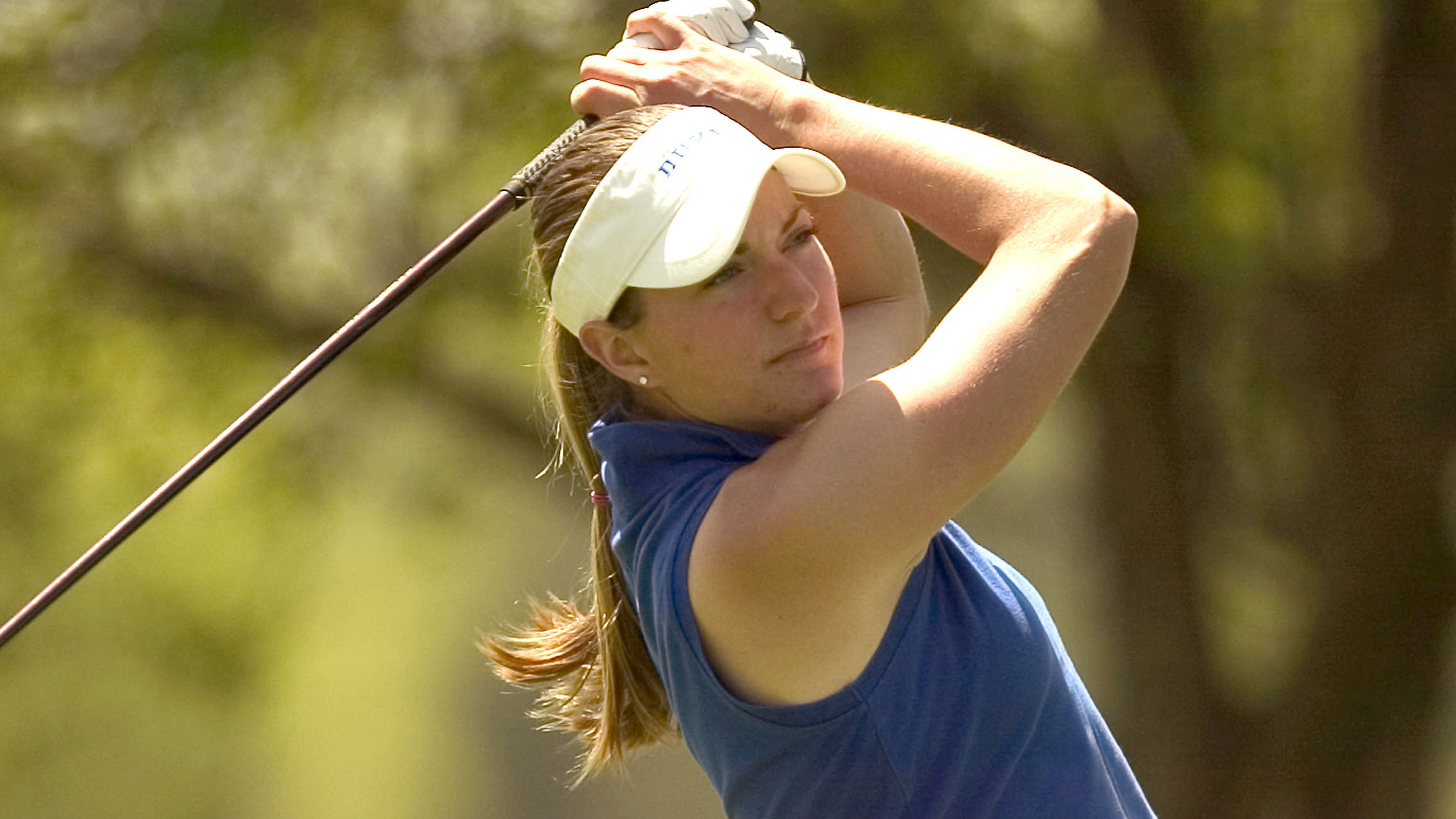
Brittany Lang was part of a dominant Duke team
You could also argue a case for the Stanford team that included Rose Zhang, who won back-to-back individual NCAA Division I Championship titles in 2022 and 2023. In the first of those tournaments, Stanford also took the team honor – only its second at that time. However, while those achievements were incredible, perhaps more time needs to elapse before assessing its overall merits.
In contrast, it’s now over three decades since the Arizona State women’s team won three straight NCAA titles between 1993 and 1995, and during that time it included future LPGA Tour winners Wendy Ward, Heather Bowie and Emilee Klein, who also took the individual title in 1994.
That era came in the middle of a period, ending in 1998, where the women’s Sun Devils team claimed six titles overall – a truly remarkable feat that began at the same time Mickelson was making history on the men’s team. Indeed, both the men's and women's team won the NCAA Division I Championship title in 1990. It had never happened before, and it has yet to happen since, making that golden era for the university hard to beat.
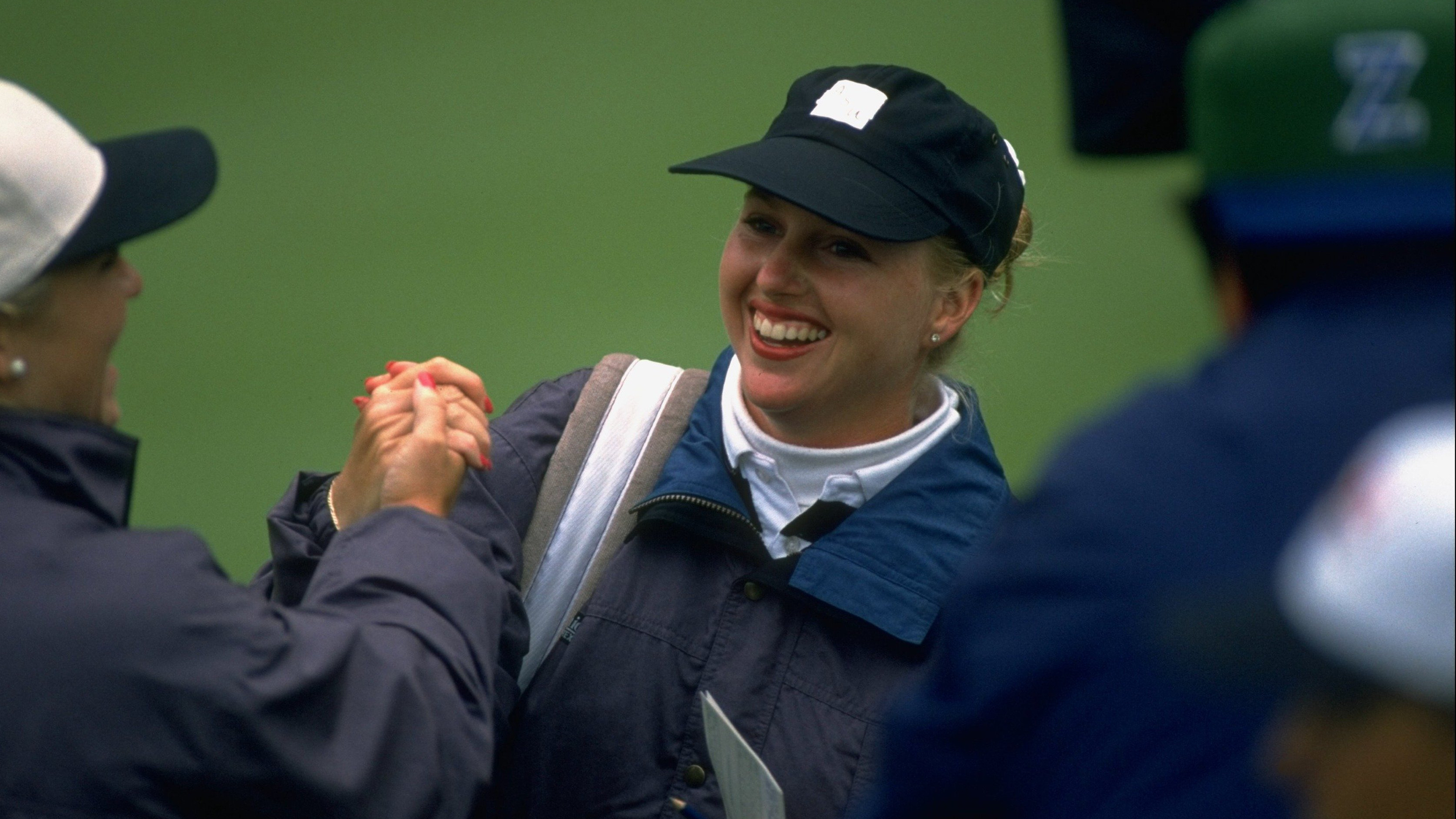
Emilee Klein was part of the successful Arizona State line-up
Despite so many candidates in men's and women's college golf, there is one team that perhaps stands out more than others. The 1974 and 1975 Wake Forest team was once dubbed the best college team of all time by Golf World Magazine, and looking at its list of achievements, it’s easy to see why.
Wake Forest won the Atlantic Coast Conference and NCAA Championships in both years. In the second year, the team beat favorite Oklahoma State by a record 33 shots in the latter event – its ninth win of that season.
Its players also won the individual titles both years, with Curtis Strange in 1974 and Jay Haas a year later. Nowadays, the pair are members of the Wake Forest Sports Hall of Fame after successful professional careers, where Strange won two US Opens and Haas won nine times on the PGA Tour.
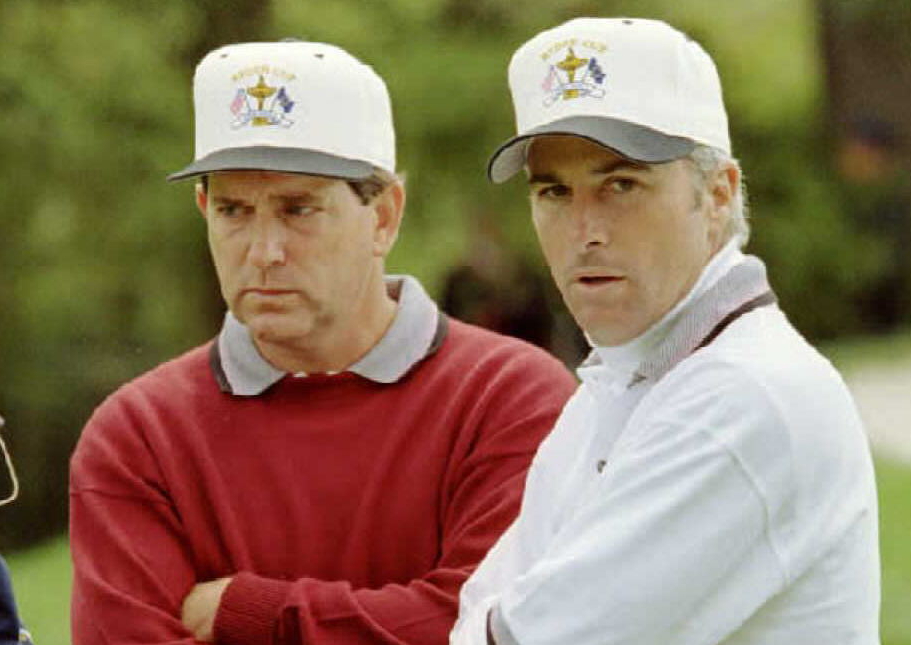
Jay Haas and Curtis Strange were part of arguably the greatest college golf team in history
Wake Forest teammates Bob Byman and David Thore also collected PGA Tour wins after leaving the university, adding to the compelling narrative that, on the question of the best college golf team ever, perhaps the answer lies with that team of half a century ago.

Mike has over 25 years of experience in journalism, including writing on a range of sports throughout that time, such as golf, football and cricket. Now a freelance staff writer for Golf Monthly, he is dedicated to covering the game's most newsworthy stories.
He has written hundreds of articles on the game, from features offering insights into how members of the public can play some of the world's most revered courses, to breaking news stories affecting everything from the PGA Tour and LIV Golf to developmental Tours and the amateur game.
Mike grew up in East Yorkshire and began his career in journalism in 1997. He then moved to London in 2003 as his career flourished, and nowadays resides in New Brunswick, Canada, where he and his wife raise their young family less than a mile from his local course.
Kevin Cook’s acclaimed 2007 biography, Tommy’s Honour, about golf’s founding father and son, remains one of his all-time favourite sports books.